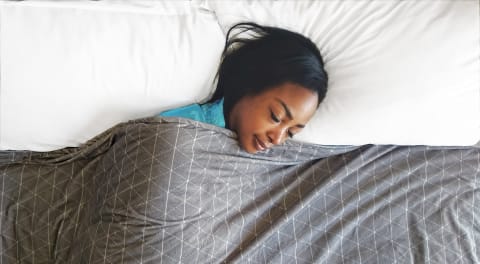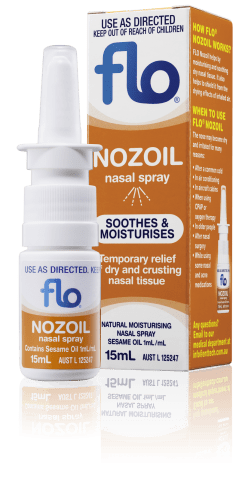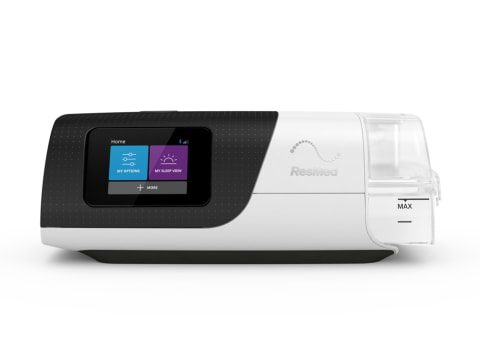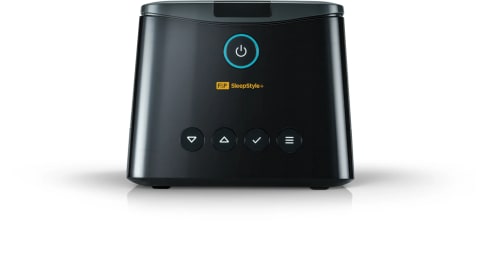Sleep Apnea and CPAP Machine
SEO Content MAY 2025 – Sleep Apnea and CPAP Machines – AM 29052025
Sleep Apnea and CPAP Machines: What You Need to Know
Being newly diagnosed with sleep apnea can feel overwhelming. You might be wondering what it means, what your treatment options are, and how to navigate the changes ahead. The good news is, you’re not alone. At Sove CPAP Clinic, we help thousands of Australians manage sleep apnea effectively with expert care, high-quality equipment, and a supportive, personalised approach. On this page, we’ll break down the basics of sleep apnea, explain how CPAP therapy works, and introduce you to our comprehensive CPAP Care Plans designed to support you every step of the way.
Sleep Apnea Affects Sleep and Breathing
Sleep apnea is a medical condition that causes your breathing to repeatedly stop and start during sleep. The most common type is Obstructive Sleep Apnea (OSA), which occurs when the muscles in your throat relax too much, causing a temporary blockage of your airway. These pauses in breathing can happen dozens or even hundreds of times a night, leading to fragmented sleep and reduced oxygen levels in your blood.
Many people with sleep apnea don’t realise they have it. Common signs include loud snoring, choking or gasping during sleep, excessive daytime fatigue, morning headaches, poor concentration, and mood changes. Sleep apnea is often underdiagnosed because these symptoms can be mistaken for general stress or poor sleep hygiene.
Left untreated, OSA can increase your risk of high blood pressure, heart disease, type 2 diabetes, stroke, and even accidents caused by daytime sleepiness. It can also affect your quality of life, relationships, and ability to perform at work.
The good news? Sleep apnea is highly treatable. With the right therapy and support, you can improve your sleep, feel more energised, and significantly reduce health risks.
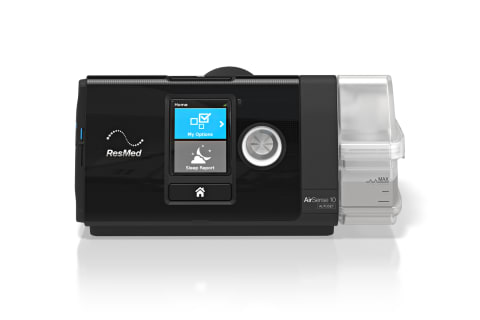 Further $50 Off with code "VALENTINES50"
ResMed AirSense 10 AutoSet 4G CPAP Machine
Further $50 Off with code "VALENTINES50"
ResMed AirSense 10 AutoSet 4G CPAP Machine
Managing Sleep Apnea
One of the most effective treatments for obstructive sleep apnea is Continuous Positive Airway Pressure (CPAP) therapy. A CPAP machine gently delivers pressurised air through a mask to keep your airway open throughout the night. This prevents the pauses in breathing that characterise OSA and helps restore restful, uninterrupted sleep.
There are two main types of CPAP machines:
Fixed-pressure CPAP: These deliver one consistent air pressure all night. The pressure is usually determined after a sleep study or titration test. This type is suitable for individuals with stable breathing patterns.
Auto-adjusting CPAP (APAP): These machines automatically adjust the pressure based on your breathing needs throughout the night. They respond to changes like sleep position or stages of sleep and are a popular choice for people new to CPAP therapy.
CPAP machines today come with features like ramp-up time (to ease you into sleep), humidifiers (to prevent dryness), and quiet motors for a more comfortable experience. Brands like ResMed and Philips Respironics offer trusted models with intuitive controls and mobile app connectivity to help you track your therapy progress.
Choosing the right CPAP machine and CPAP mask combination is essential. Masks come in different styles, including nasal, nasal pillow, and full-face options. Each type has its advantages, and the best choice depends on your comfort preferences, facial structure, and whether you breathe through your nose or mouth while sleeping.
Sove CPAP Care Plans
At Sove CPAP Clinic, we offer a wide range of CPAP machines and masks, and we help you find the best fit for your comfort and lifestyle. We also offer flexible CPAP care plans that make getting started a lot more affordable and easier.
Our 360 CPAP Care Plan includes:
- Comprehensive CPAP assessments to determine your individual needs
- Professional mask fitting and machine setup to ensure a perfect fit
- Ongoing education and usage tips to help you adapt to therapy
- Telehealth consultations for check-ins, follow-ups, and troubleshooting
- Regular machine downloads and data reviews to track progress and make timely adjustments
- Access to a wide range of CPAP masks, machines, and accessories from leading brands
- Expert support from respiratory therapists and sleep-trained clinicians
The goal is simple: to help you succeed with CPAP therapy. That means not only having the right equipment but also understanding how to use it, feeling confident about your treatment, and knowing there’s always someone you can contact if you have questions or concerns.
We know that support doesn’t end after you purchase your machine. That’s why we provide long-term care and check-ins to ensure your therapy remains effective and comfortable. Our team is here to answer your calls, walk you through challenges, and celebrate your success. We believe sleep apnea treatment should be empowering—not intimidating.
ALWAYS FOLLOW THE DIRECTIONS FOR USE. CPAP is used for Obstructive Sleep Apnoea treatment. When considering whether a sleep study or CPAP is right for you, speak to your doctor. Medicare criteria and T&Cs apply. Payment plans available for approved applicants only; fees, terms, conditions, minimum amounts and exclusions apply.
Frequently Asked Questions
How Is Obstructive Sleep Apnea (OSA) Different from Other Types of Sleep Apnea?
Obstructive Sleep Apnea (OSA) is the most common form of sleep apnea. It happens when the muscles in your throat relax too much during sleep, causing the airway to narrow or close completely. Central Sleep Apnea (CSA), on the other hand, involves the brain not sending proper signals to the muscles that control breathing. There’s also Complex Sleep Apnea Syndrome, a combination of both OSA and CSA.
Each type requires different approaches to diagnosis and treatment. OSA is usually managed with CPAP therapy, while CSA may need more advanced solutions, including adaptive servo-ventilation (ASV) machines or medical evaluation for underlying causes. At Sove CPAP Clinic, we help interpret your results and match you with the most suitable treatment approach for your condition.
Can Children Have Sleep Apnea and Use CPAP Machines as Treatment?
Yes, children can have sleep apnea, although it’s less common in adults. Pediatric sleep apnea is often linked to enlarged tonsils or adenoids, obesity, or genetic conditions. Symptoms may include snoring, restless sleep, bedwetting, and behavioural issues such as inattention or hyperactivity.
In many cases, surgical removal of the tonsils and adenoids can resolve the issue. However, when surgery isn’t appropriate or doesn’t fully resolve the condition, CPAP therapy may be recommended. Special CPAP machines and child-sized masks are available to ensure a safe, comfortable fit. A sleep specialist should always oversee treatment, and parents should receive support and education to help their child adapt to therapy. Sove CPAP Clinic can provide guidance and equipment recommendations for young patients.
Are Fixed-Pressure or Auto-Adjusting CPAP Machines More Suitable for Sleep Apnea?
Both types of CPAP machines can be effective, and the best option depends on your individual needs. Fixed-pressure machines are often prescribed after a sleep study determines the exact pressure required to keep your airway open. They’re simple, reliable, and often more affordable.
Auto-adjusting CPAPs (APAPs) use built-in sensors to detect breathing patterns and automatically adjust pressure. This can be more comfortable for new users or for those whose pressure needs vary. APAPs also provide flexibility if you change sleep positions, experience congestion, or go through lifestyle changes like weight gain or loss.
At Sove CPAP Clinic, we can help you choose between these options based on your sleep study results, medical history, lifestyle, and preferences. We’ll make sure your machine supports your comfort and long-term success.
Do Lifestyle Changes Complement the Use of CPAP Machines for Sleep Apnea?
Absolutely. While CPAP therapy is the most effective treatment for moderate to severe OSA, lifestyle changes can enhance results and even reduce the severity of symptoms. These include:
- Maintaining a healthy weight
- Reducing alcohol intake
- Avoiding sedatives before bed
- Sleeping on your side rather than your back
- Quitting smoking
- Establishing a consistent bedtime routine
These changes help keep your airway clear and reduce the likelihood of apnea events. They also contribute to improved overall health, energy levels, and emotional well-being. When combined with consistent CPAP use, they can lead to better sleep quality and long-term improvement. At Sove CPAP Clinic, we provide guidance on both therapy and lifestyle to support your overall treatment journey.
How Can I Travel Conveniently When I Have to Manage Sleep Apnea?
Travelling with CPAP equipment is entirely manageable with a bit of planning. Many modern CPAP machines are compact, lightweight, and come with travel cases. There are even travel-specific CPAP models with battery options for camping, long flights, or places without power.
Airlines typically allow CPAP machines as a medical device, meaning they don’t count as part of your luggage limit. Be sure to carry your CPAP in your hand luggage and bring a copy of your prescription or a medical letter if needed. You can also invest in portable power solutions and universal adaptors for overseas use.
Can I Reduce CPAP Noise with Accessories or Positioning?
CPAP machines are designed to be quiet, but sometimes the sound of airflow or slight vibrations can be noticeable. Here are a few tips to reduce noise:
- Ensure your machine is on a stable, flat surface
- Use a CPAP-specific nightstand mat to absorb vibration
- Check for air leaks in your mask or tubing
- Clean filters regularly and replace as recommended
- Consider relocating the machine slightly away from your bed
Some machines also have ultra-quiet motors or noise-dampening features. If you’re sensitive to sound or your partner is a light sleeper, these small adjustments can make a big difference. At Sove CPAP Clinic, we recommend low-noise models and practical accessories to help make your therapy as peaceful as possible.




